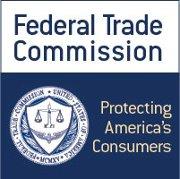
MoneyGram Agrees to Pay $125 Million to Settle Allegations that the Company Violated the FTC’s 2009 Order and Breached a 2012 DOJ Deferred Prosecution Agreement
MoneyGram International, Inc. has agreed to pay $125 million to settle allegations that the company failed to take steps required under a 2009 Federal Trade Commission order to crack down on fraudulent money transfers that cost U.S. consumers millions of dollars.
The $125 million payment is part of a global settlement that resolves allegations that MoneyGram also violated a separate 2012 deferred prosecution agreement with the Department of Justice.
“The FTC’s 2009 order required MoneyGram to protect consumers from fraud through its money transfer system, and today we are holding MoneyGram accountable for its failure to do so,” said FTC Chairman Joe Simons. “MoneyGram’s alleged failure to implement key provisions of the order allowed scammers to continue to use its money transfer system to rip off consumers.”
Money transfers are a preferred method of payment for fraudsters because money sent through money transfer systems can be picked up quickly at locations all over the world, and once the money is paid out, it is all but impossible for consumers to get their money back. The systems also often allow scam artists to remain anonymous when receiving money from their victims.
In its new filing addressing violations of the 2009 order, the FTC alleges that MoneyGram failed to implement the comprehensive fraud prevention program mandated by the 2009 order, which requires the company to promptly investigate, restrict, suspend, and terminate high-fraud agents.
The 2009 order required MoneyGram to conduct timely fraud investigations of any agent location that has received two or more fraud complaints within 30 days; has fraud complaints totaling 5 percent or more of the location’s total monthly received transactions; or has displayed any unusual or suspicious money transfer activity. It also must terminate locations that may be complicit in fraud-induced money transfers.
The FTC alleges that MoneyGram was aware for years of the high levels of fraud and suspicious activities involving certain agents, including large chain agents. For example, the standards MoneyGram established for taking disciplinary actions did not comply with the 2009 order, because those standards required agents to have unreasonably high fraud rates before they could be suspended or terminated, according to the FTC. At the same time, MoneyGram also often failed to promptly conduct the required reviews or to suspend or terminate agents, particularly those from larger locations with high levels of fraud.
The FTC alleges, for example, that MoneyGram did not place any restrictions on one large chain agent until approximately mid-2013, even though the chain was the subject of more fraud complaints than any other MoneyGram agent worldwide. Some of the chain’s locations had fraud rates as high as 50 percent of the money transfer activity. When it did take disciplinary action, MoneyGram focused on lower-volume, “mom and pop” agents with high levels of fraud, while treating large chain agents differently, according to the FTC.
The FTC also alleges that MoneyGram’s computerized monitoring system, aimed at blocking known fraudsters from using its service, malfunctioned for an 18-month period in 2015 and 2016. During that time, MoneyGram failed to block individuals that the company knew or should have known were using its service for fraud or to obtain fraud-induced money transfers.
MoneyGram also allegedly violated the order by failing to properly vet its agents and by not providing appropriate training on how to detect and prevent consumer fraud for all its agents, including locations with high fraud rates.
Under the 2009 order, MoneyGram also was required to record the complaints it receives about fraud-induced money transfers and to share that information with the Commission. Between January 1, 2013 and April 30, 2018, MoneyGram received at least 295,775 complaints about fraud-induced money transfers—a large majority of which involved a small percentage of agents. The Commission alleges, however, that the company, in some cases, failed to record information it received about fraud-induced money transfers and share it with the FTC.
In addition to the monetary payment, MoneyGram has agreed to an expanded and modified order that will supersede the 2009 order and apply to money transfers worldwide. The modified order requires, among other things, that the company block the money transfers of known fraudsters and provide refunds to fraud victims in circumstances where its agents fail to comply with applicable policies and procedures. In addition, the modified order includes enhanced due diligence, investigative, and disciplinary requirements.
The Commission wishes to thank the following agencies for their assistance in this matter: The Department of Justice’s Money Laundering and Asset Recovery Section; the U.S. Attorney’s Office for the Middle District of Pennsylvania; the U.S. Postal Inspection Service, Philadelphia Division Office in Harrisburg, Pennsylvania; and the Office of the Minnesota Attorney General.
The Commission vote authorizing the staff to file the stipulated order for compensatory relief and modified order for permanent injunction was 5-0. The FTC filed the stipulated order in the U.S. District Court for the Northern District of Illinois, Eastern Division. NOTE: Stipulated final orders have the force of law when approved and signed by the District Court judge.
